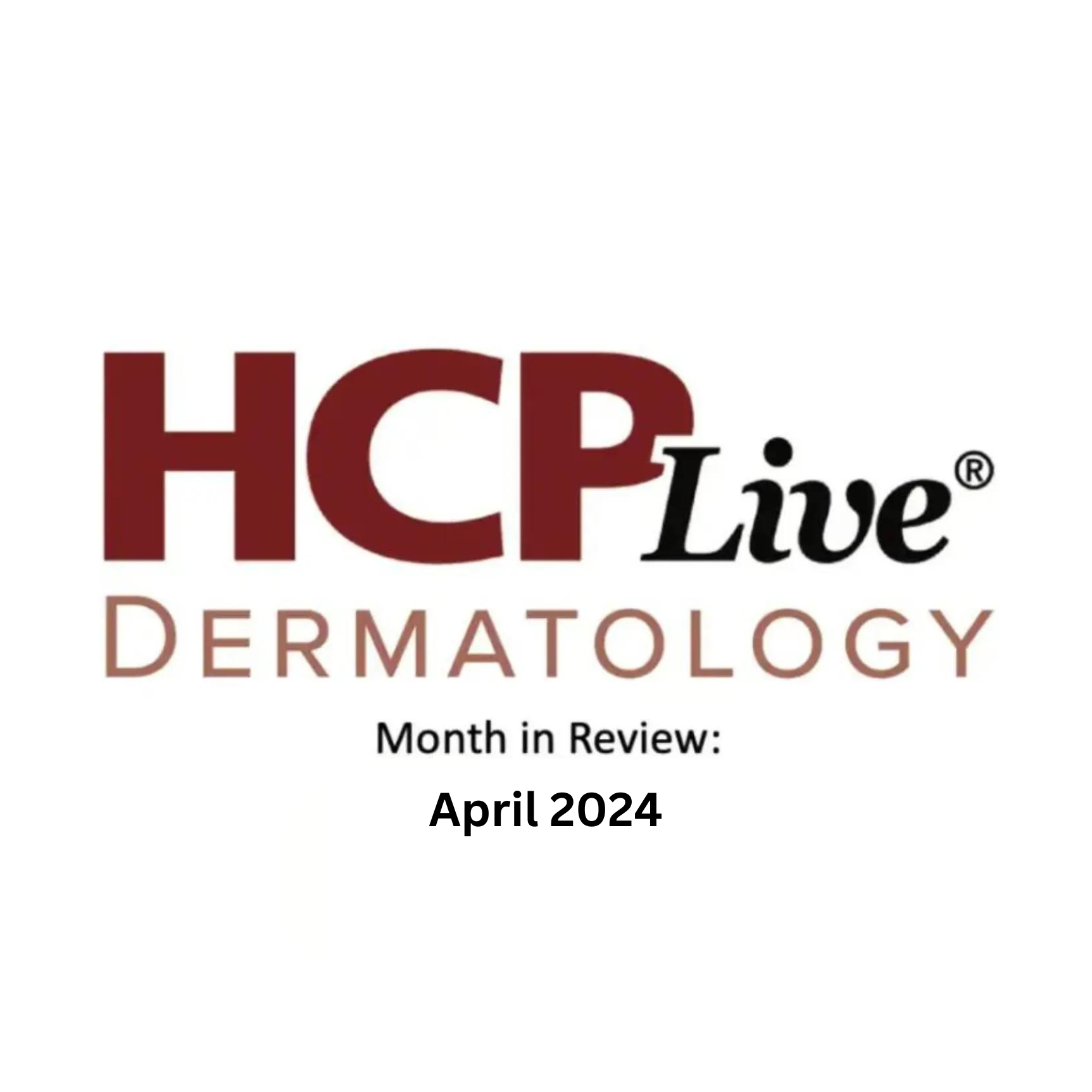Dermatology Month in Review: April 2024
In this review of dermatology news in April, we highlighted several major stories on such topics as cutaneous reactions to COVID-19, topical versus oral minoxidil, and FDA news.

The field of dermatology has had a variety of significant research news appear in the early part of 2024, and April was a month that saw several such developments.
This month, the plethora of stories in the dermatology space included new studies highlighting probiotic supplementation as a psoriasis treatment option, new submissions to the US Food and Drug Administration (FDA), and data comparing the results of minoxidil formulations.
In April’s Dermatology Month in Review, the HCPLive editorial team highlighted several of these major stories in dermatology news and their significance to the field and to clinicians seeking to expand their armamentarium for the management of different dermatologic diseases.
Probiotic Supplementation May Serve as Psoriasis Treatment Option, Study Finds
This study concluded that both Psoriasis Area Severity Index (PASI) and Dermatology Life Quality Index (DLQI) scores may be lowered following patients’ use of probiotic supplements, indicating the possibility of such supplements as a management strategy for the chronic skin condition.
The investigators, led by Xiaoshu Liao, BS, and Kebo Wei, MM, from the Hospital of Chengdu University of Traditional Chinese Medicine, had conducted a meta-analysis of research assessing probiotics’ implementation in the addressing of psoriasis. The research team used the Cochrane Library, Embase, Web of Science, and PubMed databases and ended their search with 5 studies on the subject.
Topical Versus Oral Minoxidil: Differences in Efficacy for Men with Androgenetic Alopecia
Another study found that similar efficacy to low dose oral minoxidil was observed in topical minoxidil, 5%, among males known to have androgenetic alopecia. The findings suggested that either option could, consequently, serve as a possible alternative for patients with this condition who prefer either treatment.
The study had been carried out by researchers in Brazil who looked at both topical and oral minoxidil options for male hair regrowth among those with androgenetic alopecia, with the team being led by Mariana Alvares Penha, MD, MSc, from São Paulo State University (UNESP). Penha and colleagues used a double-blind, placebo-controlled randomized trial design and compared the safety, efficacy, and tolerability of oral minoxidil, 5 mg, once daily to topical minoxidil, 5%, twice daily for a course of 24 weeks.
Study Highlights Most Common Cutaneous Events in Patients Given COVID-19 Vaccines
In a study conducted in Japan, a certain percentage of patients who had been vaccinated for COVID-19 were shown to have developed different cutaneous reactions such as new-onset erythematous eruptions urticaria, though most of the cutaneous adverse events (AEs) were non-significant. This study was a case series and literature review carried out at Kagoshima City Hospital and was led by Atsunori Baba, from the department of dermatology at Kagoshima City Hospital in Japan.
“We hope that the present article provides its audience with the knowledge that is essential to today's standards of cutaneous examination and treatment of cutaneous AEs following the COVID-19 vaccination,” Baba and colleagues wrote.
Dermatology Skills for Internal Medicine Physicians with Roy Colven, MD
https://www.hcplive.com/view/dermatology-skills-for-internal-medicine-physicians-with-roy-colven-md
In a presentation titled ‘Dermatology for the Internal Medicine Physician: Honing Your Skills’ at the American College of Physicians (ACP) Internal Medicine Meeting, University of Washington professor Roy Colven, MD, covered several topics in dermatology he felt internists should understand when focusing on the diagnosis, management, and referral of individuals with apparent skin diseases.
Colven went into several general rules he views as essential for internal medicine physicians when it comes to skin diseases among patients, covering common rashes which must be recognized, lesions that internists should never miss, diseases and other issues requiring referral and/or biopsies, and comparisons with various topical treatments.
FDA Accepts Tapinarof Cream sNDA for Atopic Dermatitis Patients Aged 2 Years and Older
An announcement was made by the biopharmaceutical company Dermavant Sciences that the FDA had accepted their Supplemental New Drug Application (sNDA) for tapinarof cream, 1% (Vtama) as a treatment of adults and children 2 years of age and older with atopic dermatitis. The drug’s Prescription Drug User Fee Act (PDUFA) action date was also noted as being scheduled for the fourth quarter of 2024.
“The FDA acceptance of our sNDA is an important milestone in our efforts to bring VTAMA cream, as a potentially safe and well-tolerated non-steroidal treatment option, to adults and children as young as 2 years old who suffer from atopic dermatitis,” Todd Zavodnick, Dermavant’s Chief Executive Officer, expressed in a statement.
Lebrikizumab for Atopic Dermatitis Resubmitted for FDA Approval After Previous Rejection
The pharmaceutical company Eli Lilly and Company announced that it had resubmitted lebrikizumab to the FDA for use as an adult and adolescent treatment of atopic dermatitis, following the agency’s issuance of a Complete Response Letter (CRL) to lebrikizumab’s biologic license application (BLA) in October 2023.
The potential eczema treatment option has already been granted approval for this indication in the UK, Japan, and the European Union. The company is now set to wait for an FDA decision on the drug’s approval for atopic dermatitis, with a response expected in the latter half of 2024.
For any additional information on these topics and others in the dermatology space, view our full coverage of the field here.